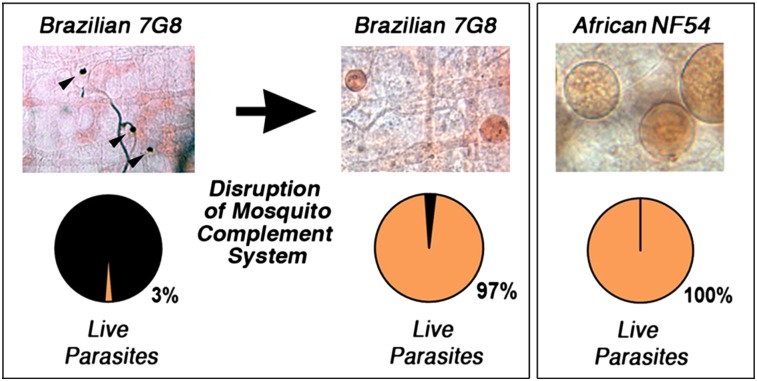Fig. P1.
A. gambiae L3-5 mosquitoes are refractory to infection with most Plasmodium species, including the P. falciparum 7G8 strain isolated in Brazil. The parasites are killed, and a black insoluble pigment, melanine, is deposited on their surface as they emerge from the mosquito midgut (Left; the black arrowheads indicate melanized parasites). However, this mosquito strain is highly susceptible to infection by some African P. falciparum strains, such as NF54 (Right). Disruption of the mosquito complement-like allows P. falciparum 7G8 to survive, showing that this parasite strain is actively eliminated by the mosquito immune system. In contrast, this treatment has no effect in mosquitoes infected with P. falciparum NF54 from Africa, indicating that this parasite strain evades the mosquito complement-like system. This ability of some parasites to evade the mosquito immune response may be promoting transmission of human malaria.

